Cheng-Kui Qu, M.D., Ph.D., a researcher at Emory University, received seed funding from Rally Foundation from 2018-2022. That early and...
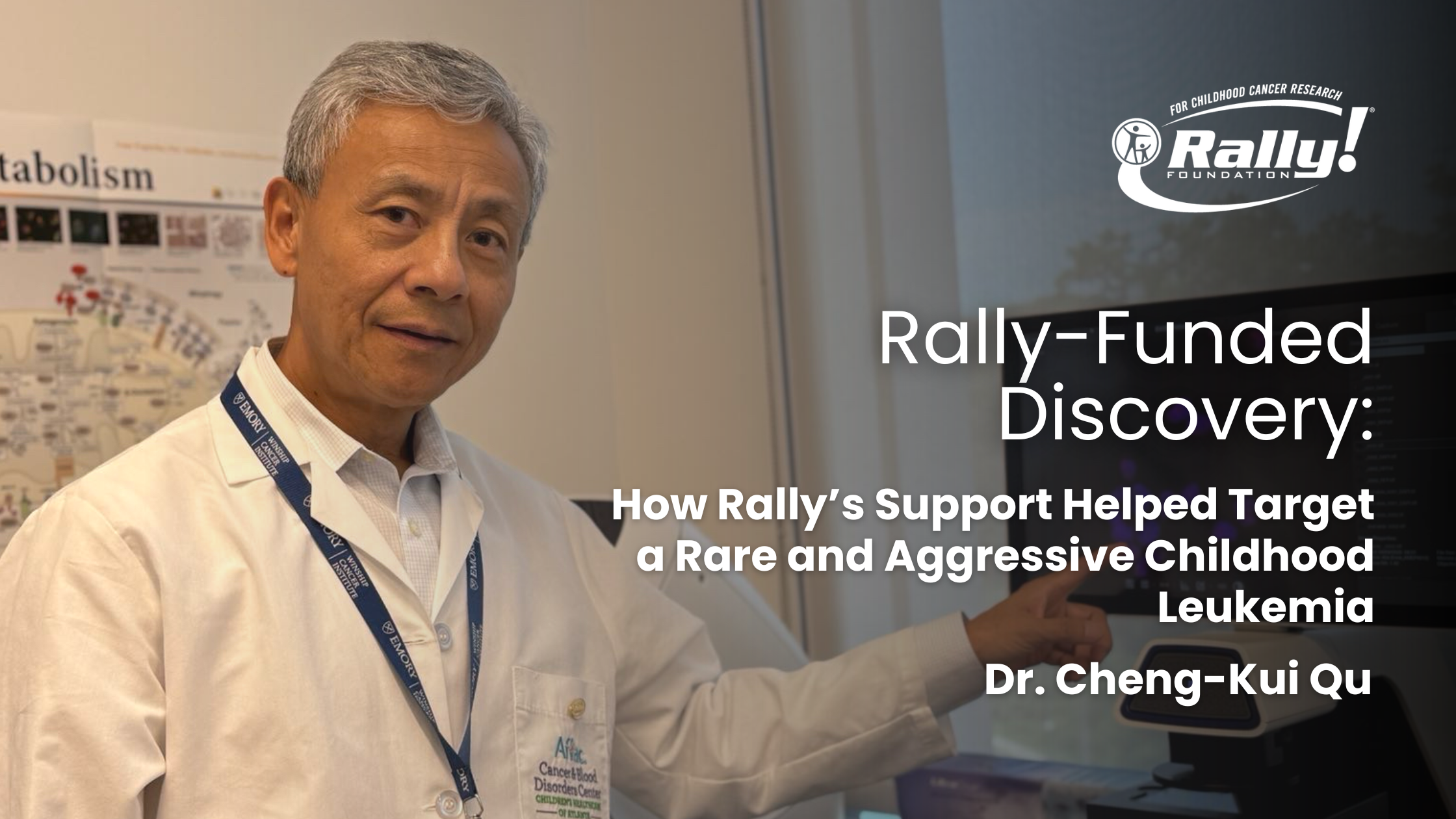

Cheng-Kui Qu, M.D., Ph.D., a researcher at Emory University, received seed funding from Rally Foundation from 2018-2022. That early and...
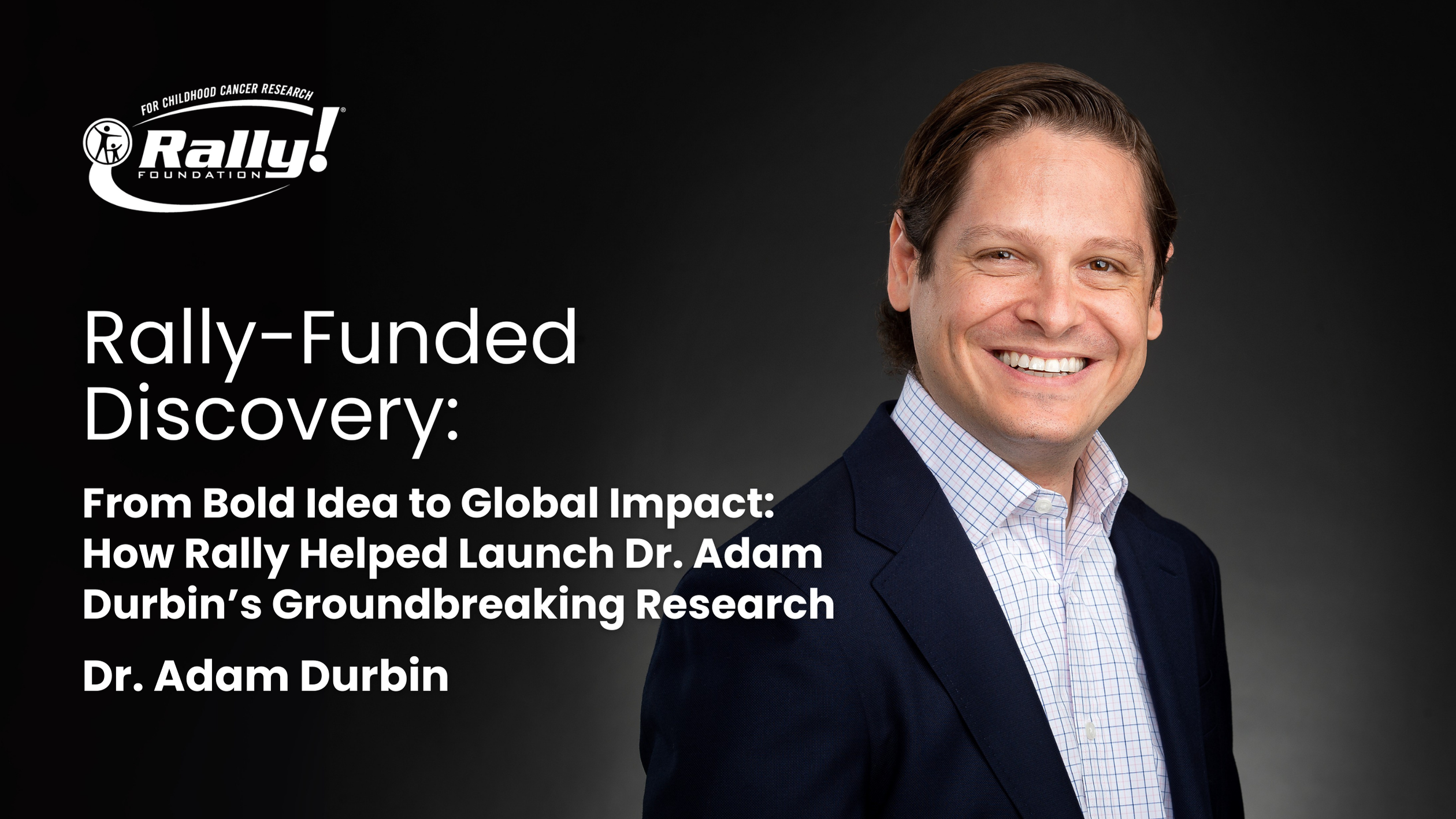
In 2018, Rally Foundation for Childhood Cancer Research said yes to a bold idea and an ambitious young scientist. That small but...
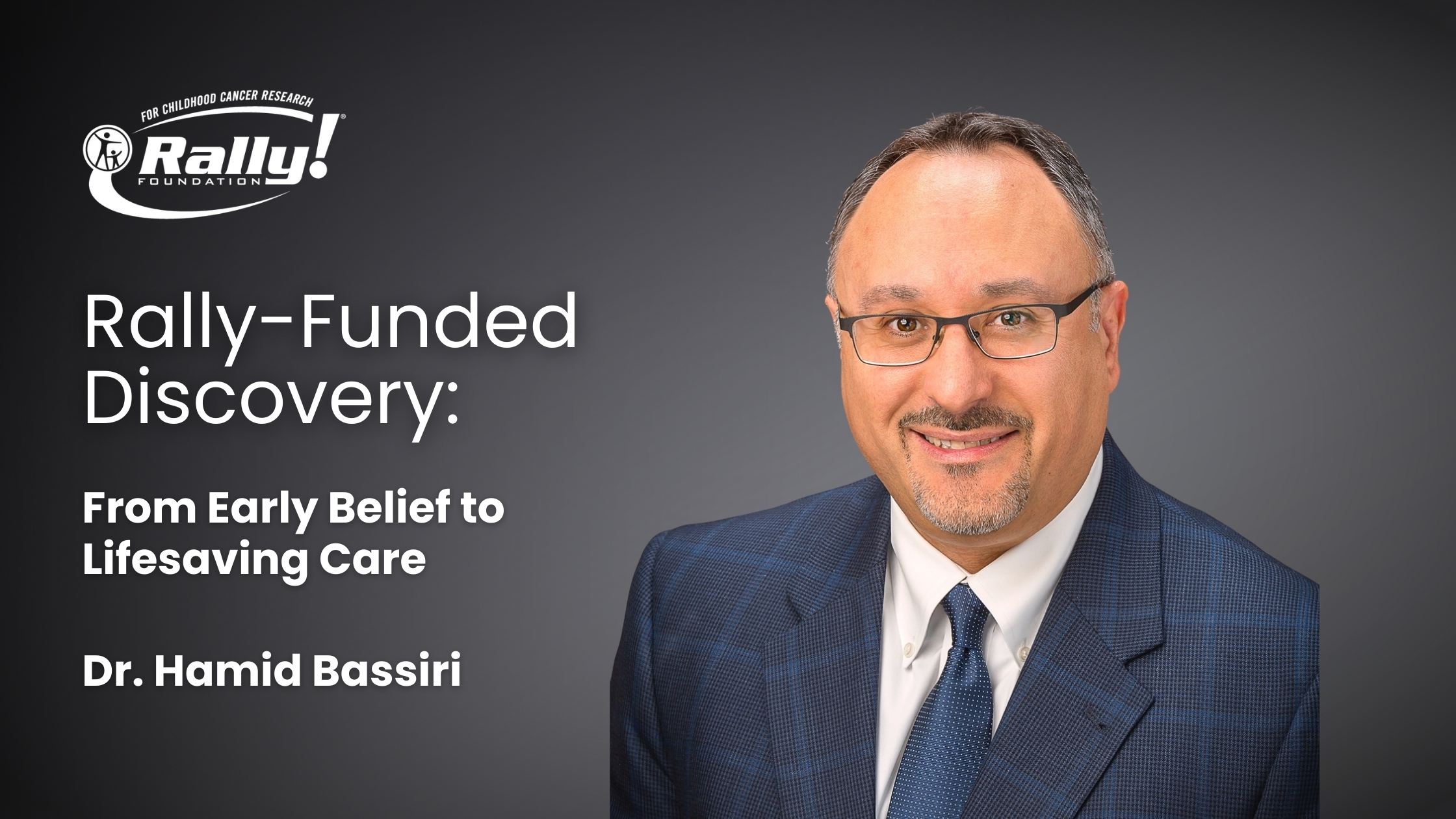
In 2018, Hamid Bassiri, M.D., Ph.D., at the Children’s Hospital of Philadelphia received early funding from Rally Foundation for Childhood...
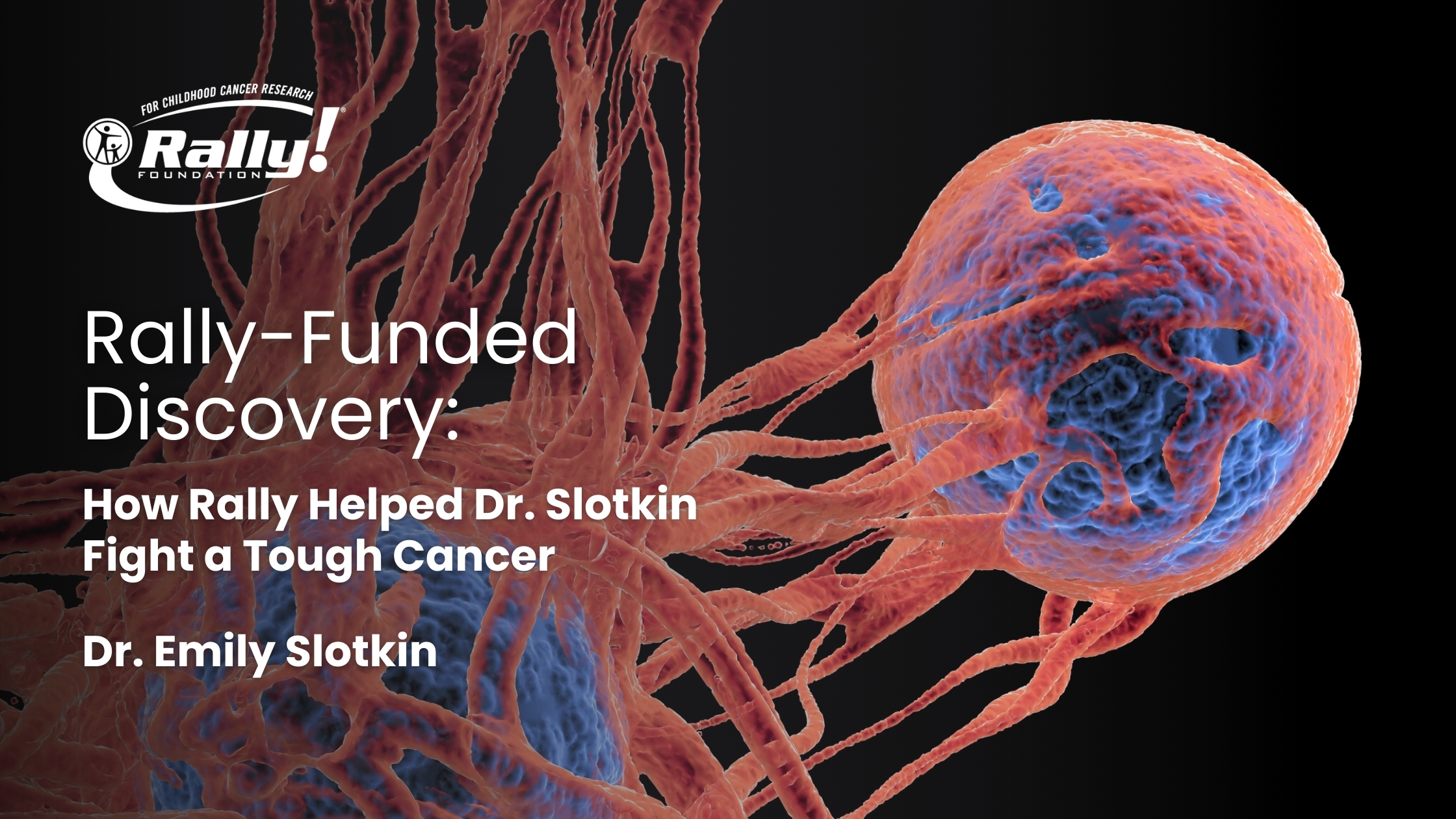
Emily Slotkin, M.D., at Memorial Sloan Kettering wanted to help kids and teens with a cancer called Ewing sarcoma. It's a fast-growing...
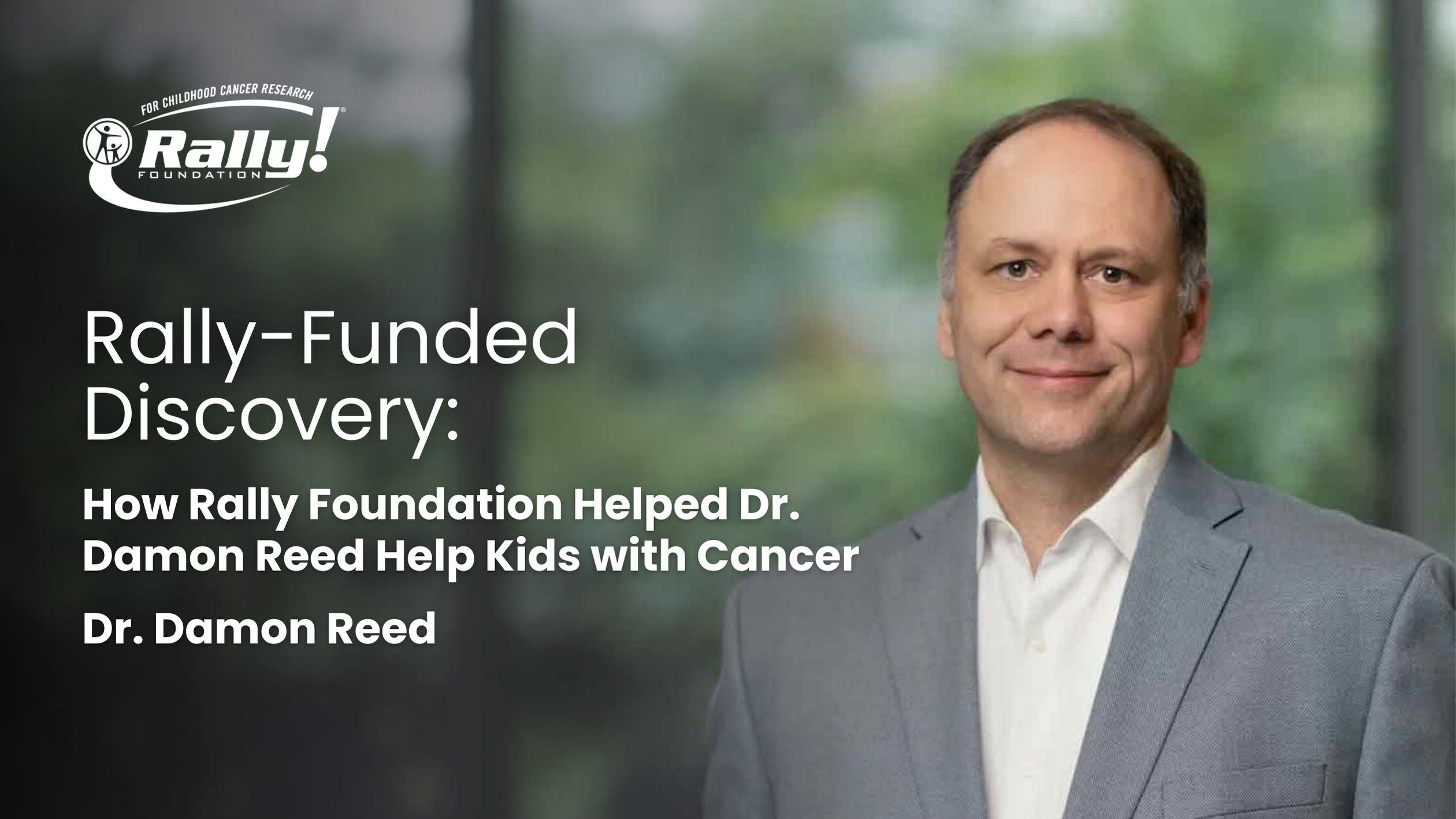
Damon Reed, M.D., is a doctor at Memorial Sloan Kettering who works hard to find better ways to help kids and teens with cancer. He...
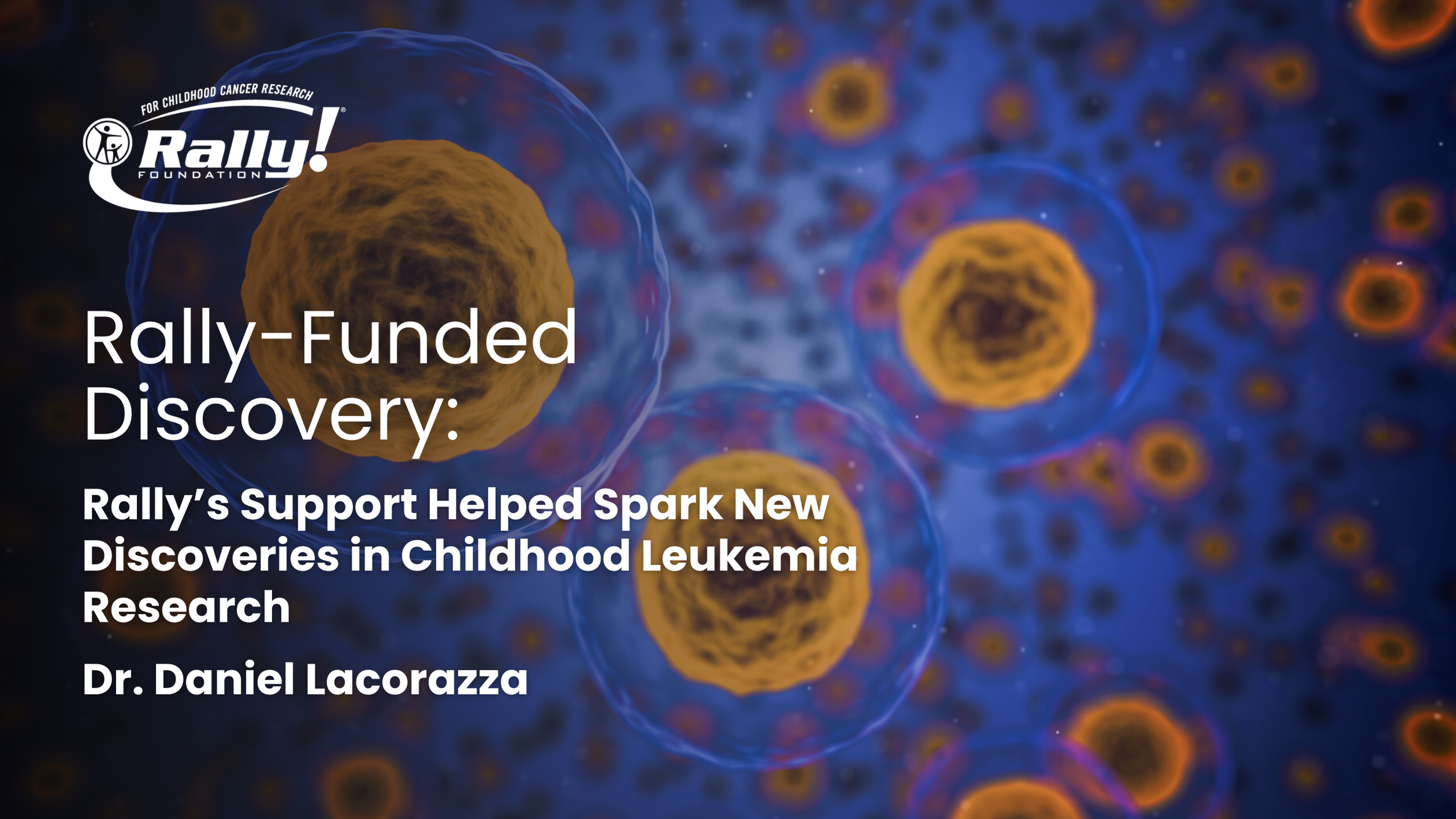
Daniel Lacorazza, Ph.D., a researcher at Baylor College of Medicine, received seed funding from Rally Foundation for Childhood Cancer...
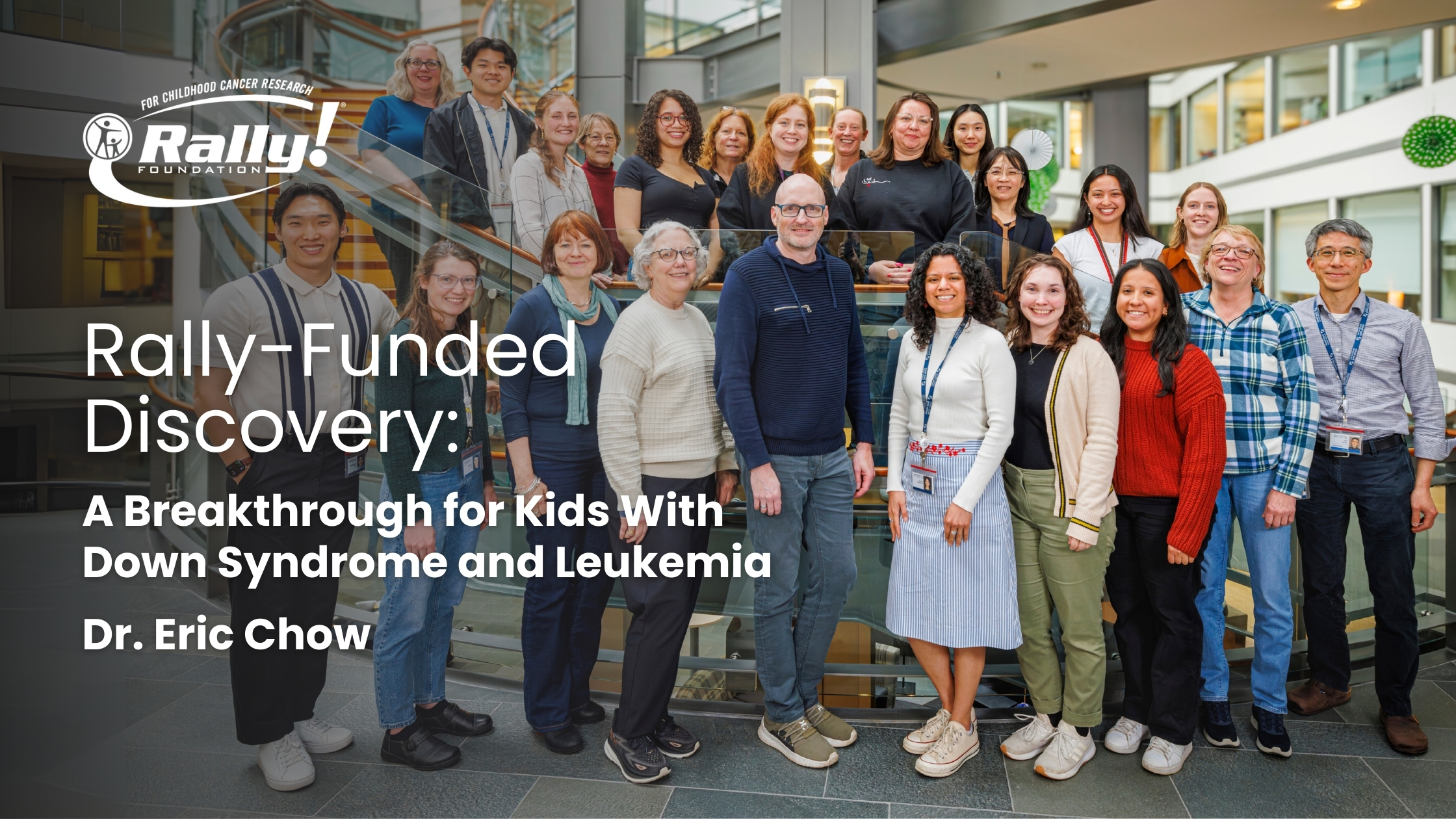
When kids go through cancer treatment, it’s not just the cancer doctors have to worry about. Sometimes, those powerful treatments can also...
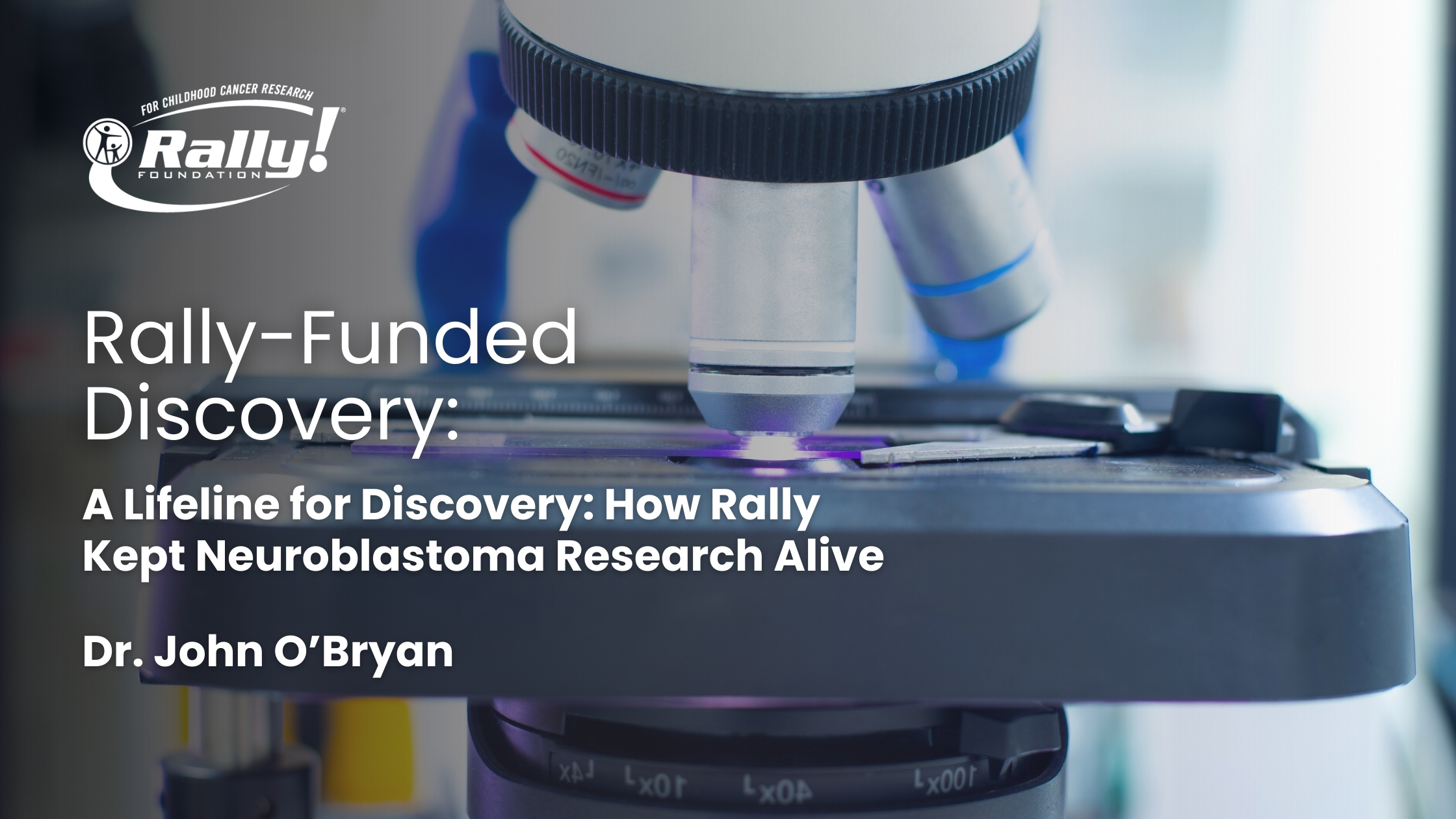
When government research funding ran out, the lab of John O’Bryan, Ph.D., at the Medical University of South Carolina faced a tough...
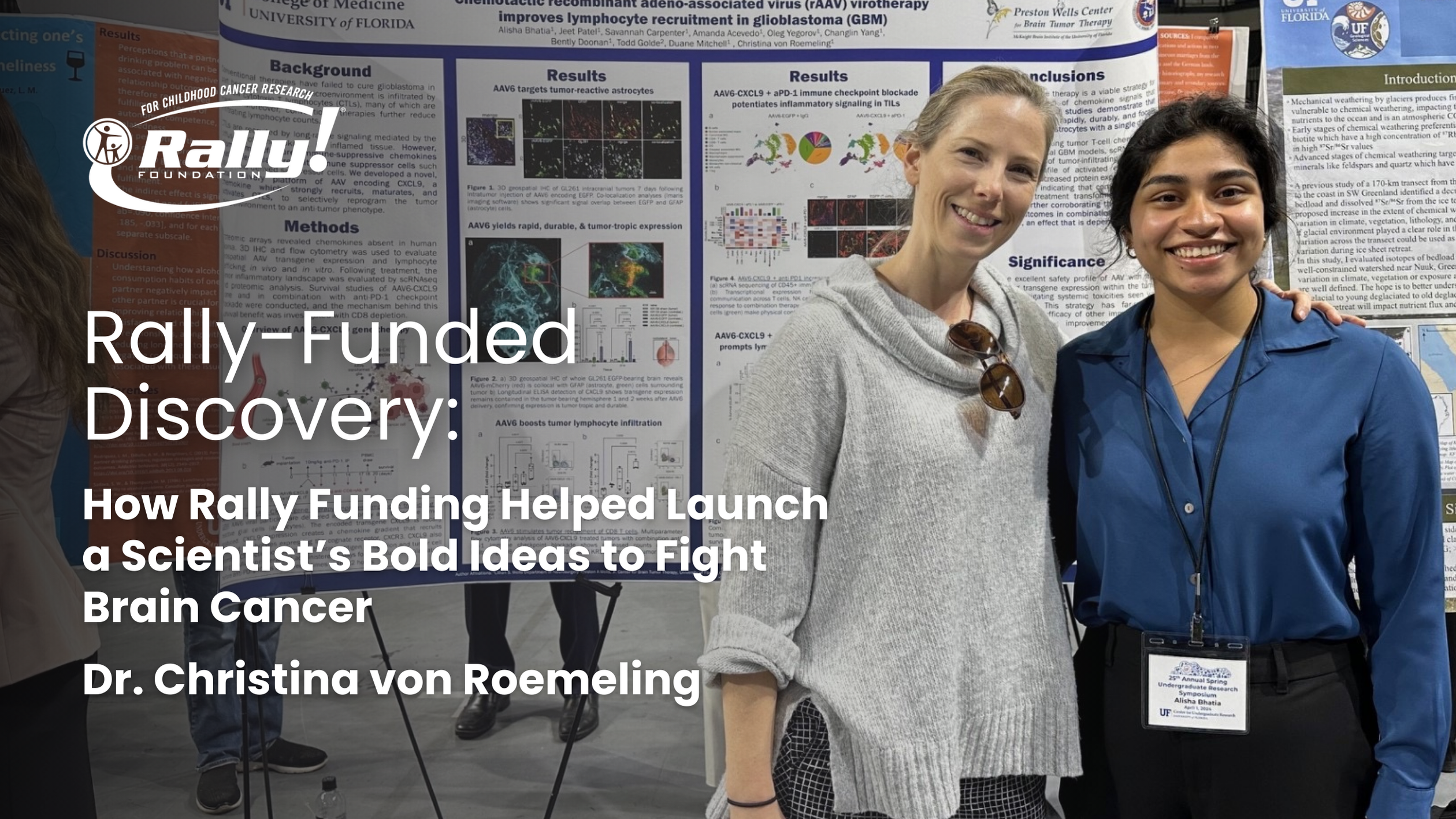
Christina von Roemeling, Ph.D., is on a mission to find better ways to treat brain tumors. When she was just starting her scientific...
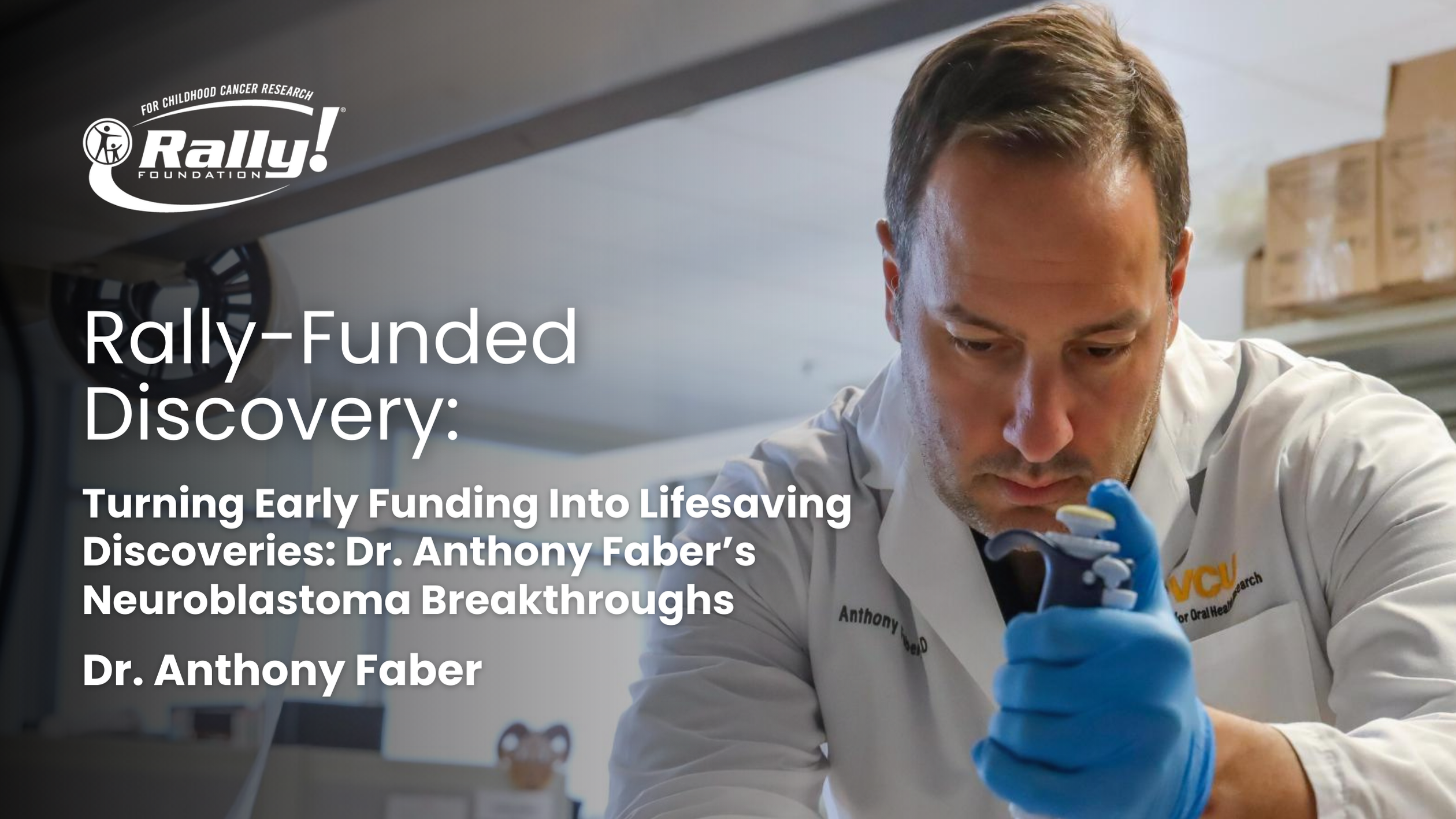
What if $100,000 could unlock $3.5 million and help bring new treatments to kids with cancer? That’s exactly what happened with Anthony...
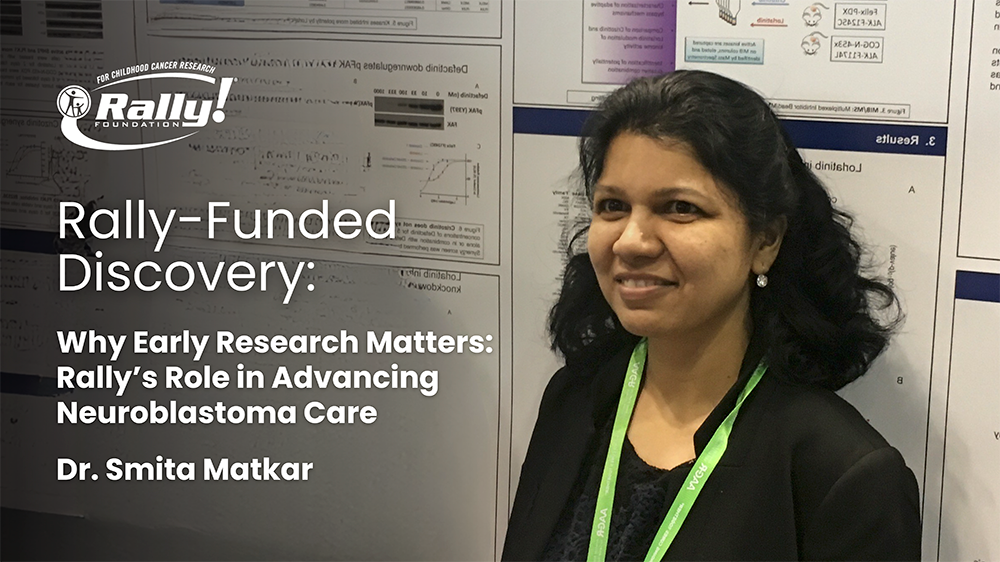
In 2020 and 2023, Smita Matkar, Ph.D., at the Children’s Hospital of Philadelphia (CHOP) received early research funding from Rally...
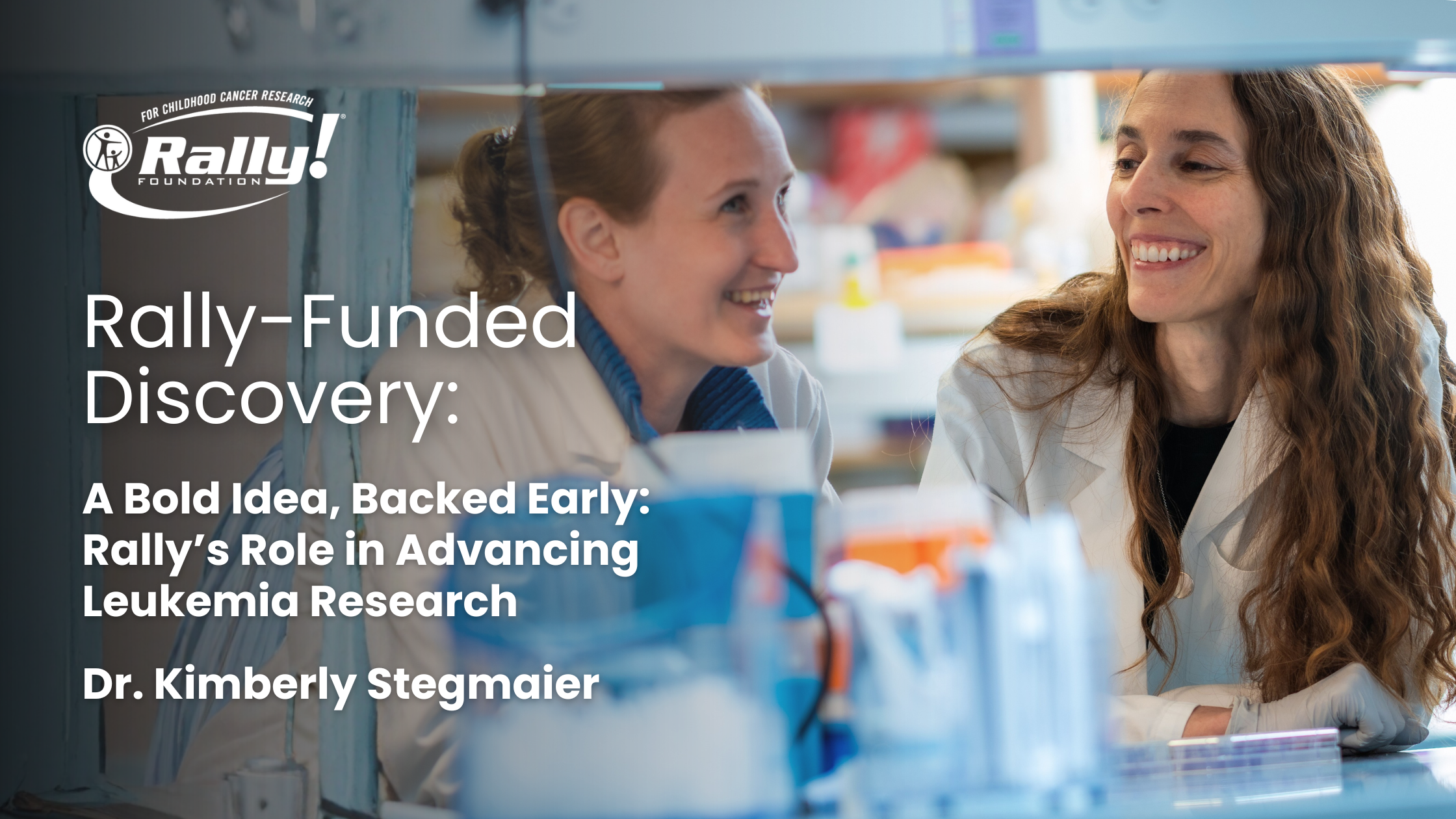
In 2016, Kimberly Stegmaier, M.D., at the Dana-Farber Cancer Institute received early research funding from Rally Foundation for Childhood...
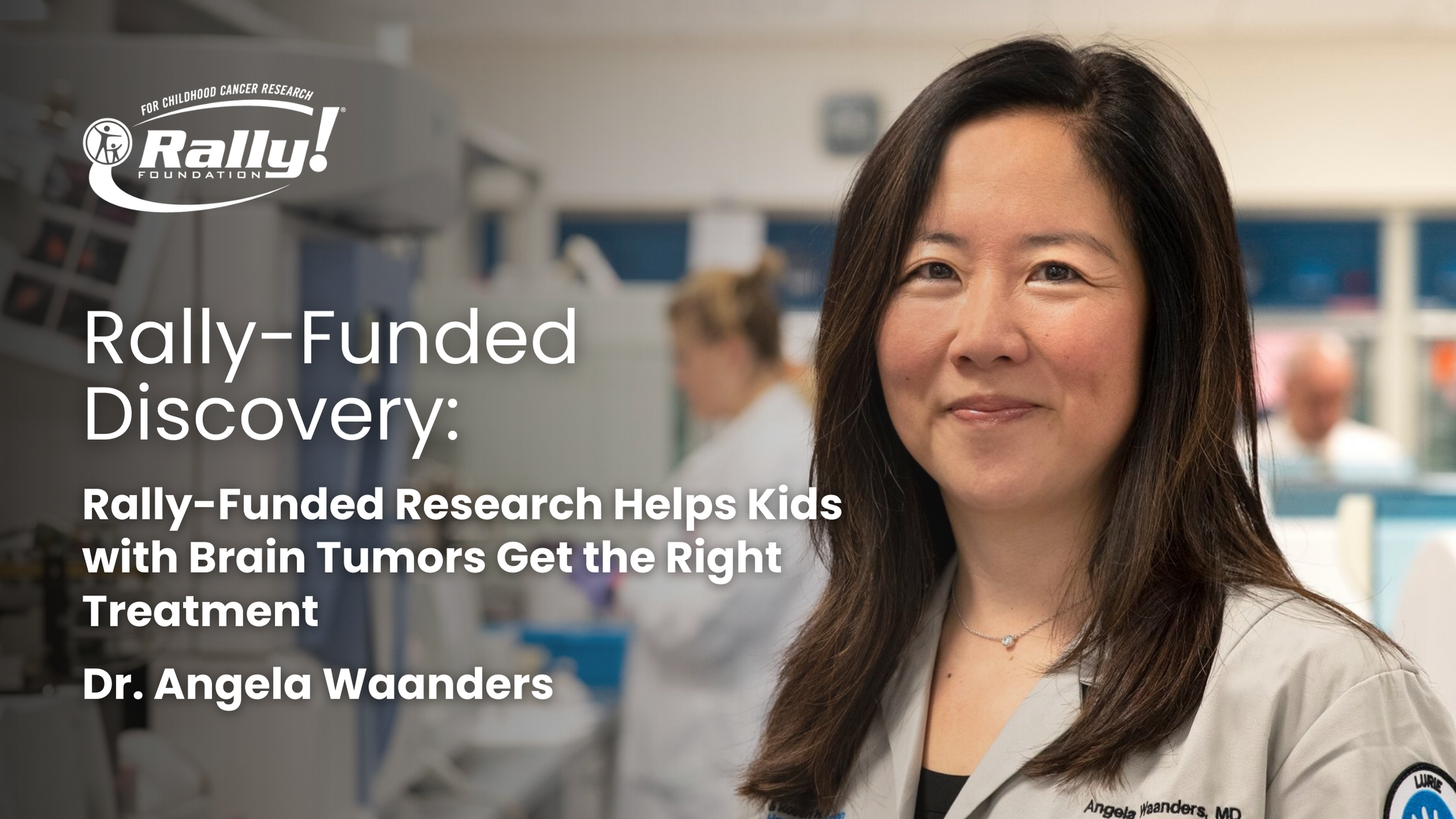
When Angela Waanders, M.D., M.P.H, was just beginning her research career at Children’s Hospital of Philadelphia, Rally Foundation for...
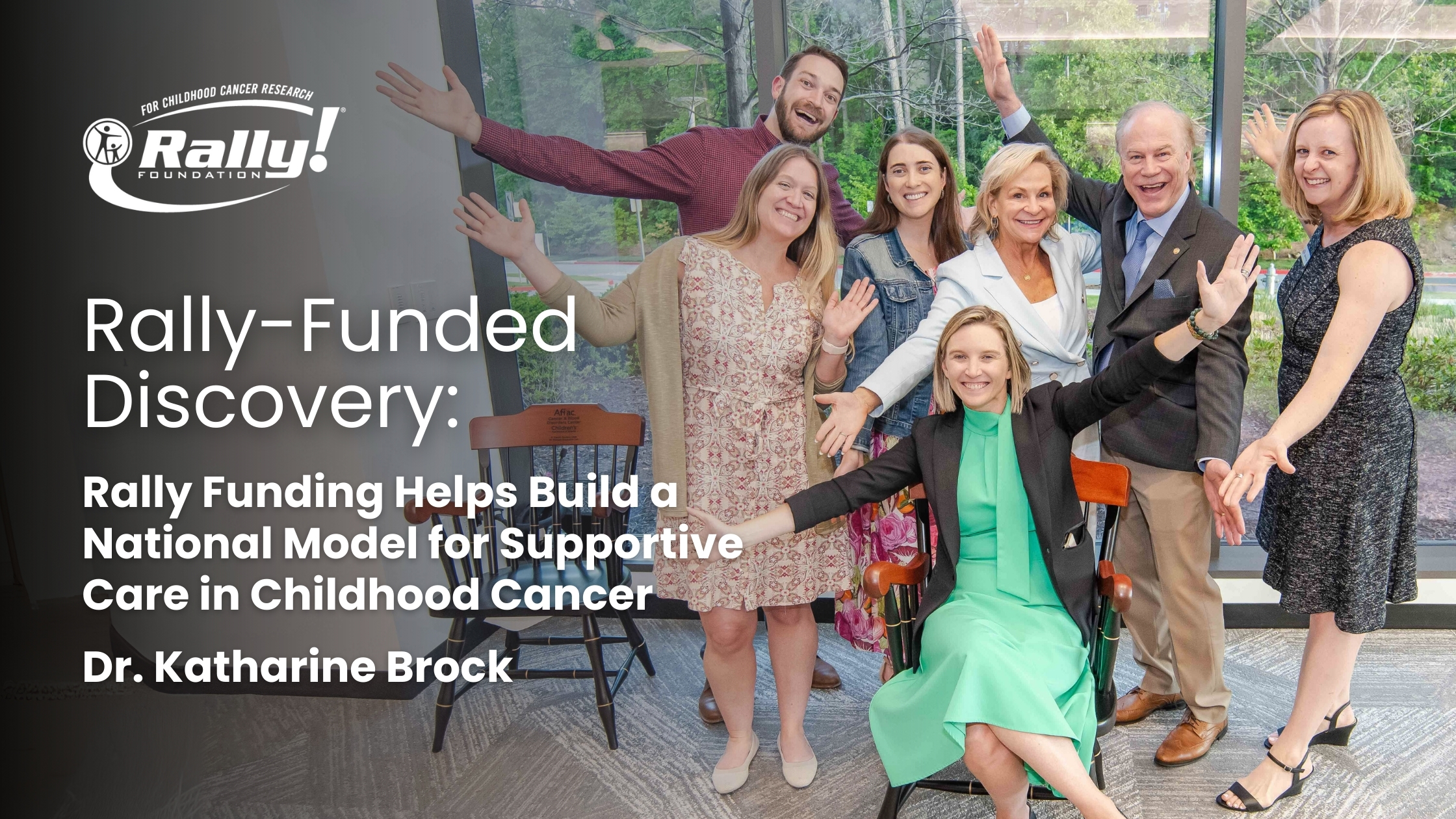
When your child is diagnosed with cancer, everything changes. Families face long hospital stays, tough treatments and overwhelming...
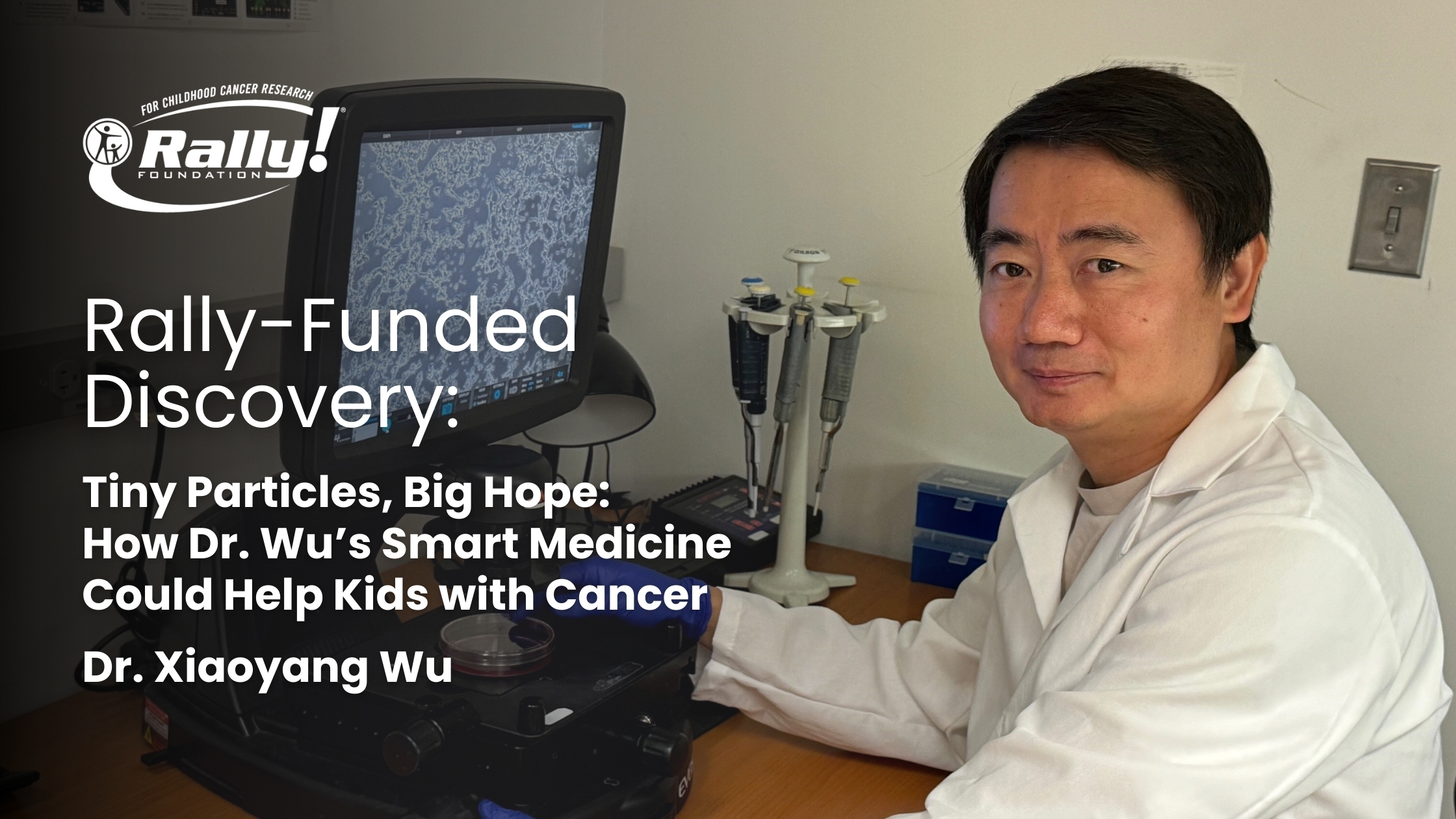
Did you know that some medicines are so smart they can go right to the bad stuff and leave the good stuff alone? That’s exactly what...

Cheng-Kui Qu, M.D., Ph.D., a researcher at Emory University, received seed funding from Rally Foundation from 2018-2022. That early and consistent support allowed his lab to make meaningful progress toward developing new treatments for juvenile myelomonocytic leukemia (JMML), a rare and aggressive childhood blood cancer that is difficult to cure. In 2018, Rally’s funding helped Dr. Qu and his team explore whether a clinically used antipsychotic drug called pimozide might have a therapeutic...

In 2018, Rally Foundation for Childhood Cancer Research said yes to a bold idea and an ambitious young scientist. That small but significant decision, a seed grant to Adam Durbin, M.D., Ph.D., did more than fund a project. It helped launch a career, a lab and a series of discoveries now rippling across the globe in the fight against childhood cancer. This is what happens when early support meets extraordinary potential. Tools That Touch the World One of the most exciting outcomes of Dr....

In 2018, Hamid Bassiri, M.D., Ph.D., at the Children’s Hospital of Philadelphia received early funding from Rally Foundation for Childhood Cancer Research. That support came at the perfect moment. It gave his lab the chance to explore a big and hopeful idea. Could the immune system help save kids with neuroblastoma? Dr. Bassiri and his team discovered how a treatment called dinutuximab, also known as Unituxin, helps the immune system find and destroy cancer cells. Today, this treatment is...

Emily Slotkin, M.D., at Memorial Sloan Kettering wanted to help kids and teens with a cancer called Ewing sarcoma. It's a fast-growing cancer in bones and soft tissue. Thanks to a grant from Rally Foundation for Childhood Cancer Research, she got to do research that looked deep into the DNA mistake, called EWSR1-FLI1, that causes this cancer. She studied how this gene mistake works and tested new medicines that try to shut it down, like creating the perfect key for a lock. This early research...

Damon Reed, M.D., is a doctor at Memorial Sloan Kettering who works hard to find better ways to help kids and teens with cancer. He received research money from Rally Foundation for Childhood Cancer Research in 2009 and 2011. This money helped him try new ideas, like mixing different medicines to see if they work better together. One of the big things he tested was using a mix of two cancer-fighting drugs for kids whose tumors came back. The study helped doctors figure out how to safely use...

Daniel Lacorazza, Ph.D., a researcher at Baylor College of Medicine, received seed funding from Rally Foundation for Childhood Cancer Research between 2013 and 2015. That early support helped launch a series of important discoveries focused on the two most common types of childhood leukemia, acute lymphoblastic leukemia (ALL) and acute myeloid leukemia (AML). With Rally Foundation’s support, they studied a natural compound called sulforaphane, found in vegetables like broccoli. Their research...